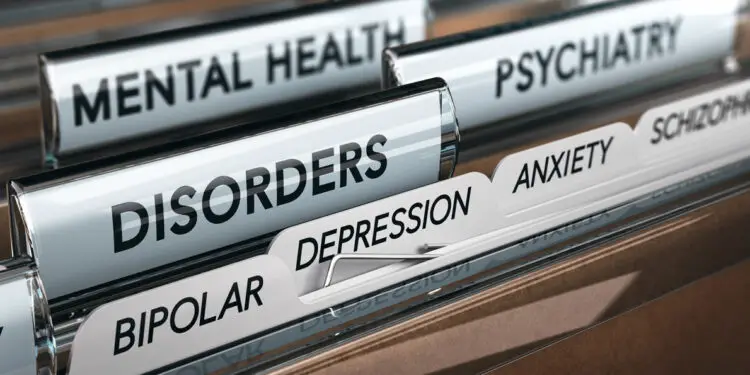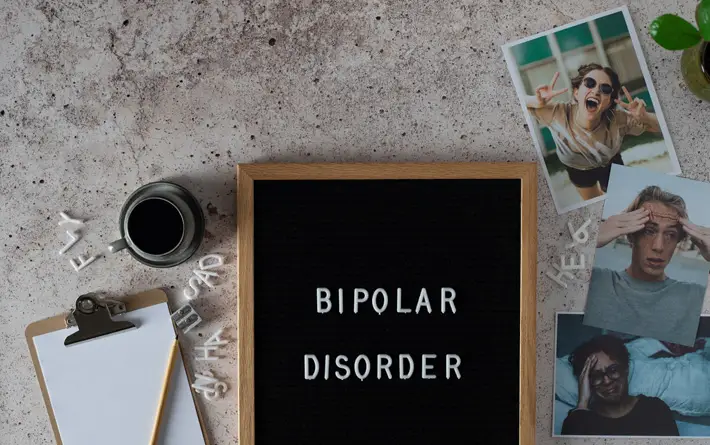What You Need To Know About Bipolar Disorder

Presented by BetterHelp.
Bipolar disorder is a common mental health condition that most people are somewhat familiar with. However, despite its prevalence, many myths, stereotypes, and misconceptions prevent many people from empathizing with the condition. Furthermore, these misconceptions may prevent some people from seeking treatment as they may not realize they have the condition themselves. Below are the basics of what you need to know about bipolar disorder so you can identify it in yourself or your loved ones.
What Is Bipolar Disorder?
Bipolar disorder is a mood disorder that is characterized by extreme mood swings that can interfere with daily life. These mood swings are not the regular mood changes that people typically experience. They can be quite intense and painful, making many aspects of life quite difficult.
People with this condition typically experience two extremes: depression and mania. Depressive episodes can result in feelings of hopelessness and worthlessness that can significantly weigh down on one’s mental health. On the other hand, mania is defined by significantly increased energy and agitation that can lead to concentration problems or poor decision-making. Some people experience hypomania, which is a more mild form of mania.
Constantly switching between these episodes can be painful and chaotic for people with bipolar disorder. Often the mood changes occur without warning, and some people wake up each day not knowing what their mood will be like. Not only can this be painful or exhausting to bear, but it adds more challenges to creating a healthy, stable, and enriching life.
The Common Symptoms Of Bipolar Disorder
Since bipolar disorder is characterized by both episodes of mania and depression, a mental health professional needs to look for two sets of symptoms when officially diagnosing someone with this condition. Just witnessing some symptoms of one episode or the other is not always enough for an accurate diagnosis.
In fact, one of the main reasons many people with bipolar disorder live without an accurate diagnosis is because they focus more on their depressive episodes and are unaware of the effects of their manic/hypomanic episodes. Instead, they are diagnosed with depression and are given treatment options that don’t work. Therefore, it is important to be aware of the symptoms of both experiences for an accurate diagnosis and understanding of bipolar disorder.
A manic or hypomanic episode is defined by the presence of at least three of the symptoms below. They include:
● Increased energy or agitation
● Unusual talkativeness
● Grandiosity
● Unusual feelings of joy or euphoria
● Racing thoughts
● Decreased need for sleep
● Difficulty concentrating
● Poor decision making, such as increased spending, risk-taking, or making other poor financial decisions
A depressive episode is defined by the presence of at least five of the symptoms listed below. They include:
● Feelings of sadness, hopelessness, and worthlessness
● Apathy or boredom
● Significant weight changes
● Insomnia or other sleeping problems
● Slowed behavior
● Fatigue
● Difficulty concentrating
● Thoughts of suicide**
**If you or a loved one are experiencing suicidal thoughts, reach out for help immediately. The National Suicide Prevention Lifeline can be reached at 1-800-273-8255 and is available 24/7.
The Different Types Of Bipolar Disorder
One of the misconceptions people have about bipolar disorder is that all people with the condition experience it the same way. When thinking about this condition, people may bring up images to mind of someone with uncontrollable emotions that cycle every couple of hours or days. However, there are many different forms of bipolar disorder, all categorized by the length and severity of the symptoms. Below are the three most common forms and how they can be identified.
● Bipolar I Disorder: This condition is characterized by the presence of at least one manic episode that lasts at least a week. It is often followed by hypomanic or depressive episodes. These episodes and the resulting symptoms often severely impact daily life.
● Bipolar II Disorder: This form of bipolar disorder is characterized by the presence of at least one episode of hypomania that lasts at least four days and at least one episode of depression that lasts at least two weeks. The mood swings are more intense than average but may not severely impact everyday life.
● Cyclothymia Disorder: This is characterized by frequent swings into depression and hypomania that last at least two years. There is no defined timeline for these mood swings, so they can cycle every few weeks or even every few days. Though people with this condition experience stable periods, these periods typically do not last longer than two months.
Though these three forms are the most common, bipolar disorder can take other forms. If you believe you live with this condition, a therapist or psychiatrist will be able to more accurately diagnose which form you have.
How To Treat Bipolar Disorder
Perhaps at this point, you realise that these symptoms seem familiar. Maybe you have witnessed those you love exhibit these mood swings or have experienced them yourself. The good news is that treatment options are available to help manage the symptoms and balance out the mood swings. Below are three of the most common ways people manage and treat this condition.
● Therapy: The most important thing you should do is discuss your condition with a therapist or psychiatrist. After discussing your symptoms and experiences, they can make a more official diagnosis and find the best treatment options for you.
● Medication: Many people with bipolar disorder treat their symptoms with medication. Some people use anti-depressants to help with their depressive episodes, while others utilize mood stabilizers. You will need to talk with a psychiatrist if you are interested in medication as a treatment option.
● Basic self-care: One of the best things you can do for your mental health, in general, is to take care of your physical health. Adequate sleep, good nutrition, and plenty of exercise are critical to keeping your mood stable and improving your well-being.
Final Thoughts On Bipolar Disorder
The common stereotypes and misconceptions about bipolar disorder lead to misinformation, and many people unknowingly live with the condition. However, bipolar disorder can be a painful condition if left untreated and can interfere with daily life. Hopefully, this article gave you a good idea about the basics of bipolar disorder and how to detect it in yourself and others. If you would like more information about this condition and how to treat it, then head to the link below for more resources:










